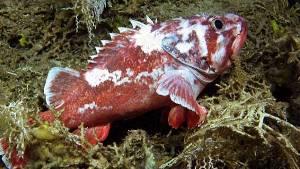Oct 9 2014
NERC-funded scientists at Heriot-Watt University have led a major new international report showing unequivocally that ocean acidification will have significant consequences for marine life, and in turn human society.
While the lowering pH of the ocean has been an unavoidable chemical response to rising carbon dioxide in the atmosphere, how it will affect life in the ocean hasn’t been clear.

Impacts of ocean acidification on marine biodiversity
But an international team of thirty experts, led by Dr Sebastian Hennige and Professor Murray Roberts from Heriot-Watt’s Centre for Marine Biodiversity and Biotechnology with support by NERC, Defra and DECC, has concluded in their report, published by the United Nations Convention on Biological Diversity (CBD), that ocean acidification is already underway and is an issue of serious environmental and policy concern.
The report, drawing on recent literature and titled ‘An updated synthesis of the impacts of ocean acidification on marine biodiversity’, shows beyond doubt that ocean acidification will worsen, causing widespread changes, mostly deleterious, to marine organisms and ecosystems, and on the goods and services they provide.
While the exact magnitude of the ecological and financial costs is still uncertain, due to complex interactions with other human-driven environmental changes, the risk to coral reefs, highlighted in the report, could cause economic damage nearing a trillion dollars a year.
In the tropics, these habitats help support the livelihoods of around 400 million people, while in European seas, cold-water corals have high conservation value and provide nursery grounds for endangered species, like deep-sea sharks, and commercial fish.
Microscopic marine fossils show that global-scale ocean acidification has occurred before, but human activities now are directly causing additional physical, chemical and biological changes – at speeds unprecedented for at least 66 million years.
The Ocean Acidification Research Programme
The report draws on modelling, laboratory and field studies by the £12m UK Ocean Acidification Research Programme (UKOA), co-funded by the Natural Environment Research Council (NERC), the Department for Environment, Food and Rural affairs (Defra) and the Department of Energy and Climate Change (DECC).
Through the UKOA programme, NERC and its partners are gaining an understanding of how marine life is responding to the challenges ocean acidification presents, and in turn the research is helping NERC to find solutions to make the ocean, and the economy around it, more resilient.
NERC’s Dr Phil Williamson, the science coordinator of the UKOA research programme, and co-editor of the report said: “A key feature of the CBD synthesis is that it acknowledges the complexity of biological responses to ocean acidification. Changes in ocean chemistry interact with other stressors, and we now know the importance of such factors as experiment length, temperature, and food supply in determining physiological and behavioural responses.”
Dr Sebastian Hennige, lead editor of the report said: “Our work at Heriot-Watt University and in the north-east Atlantic has given us a much better appreciation of the vulnerability of cold-water corals.
“There is a risk that their habitat will literally dissolve away, since living corals grow on structures made by their dead ancestors. These structures will be subject to chemical erosion over very large ocean areas if current trends continue.”
Professor Murray Roberts, co-editor of the report and co-ordinator of the University’s new Lyell Centre for Earth and Marine Science and Technology said: “At the end of the day, the only way to deal with ocean acidification is to reduce CO2 emissions. But for this to happen people first need to be aware that ocean acidification is an important issue, and having it high on the CBD agenda is a huge step forward.”